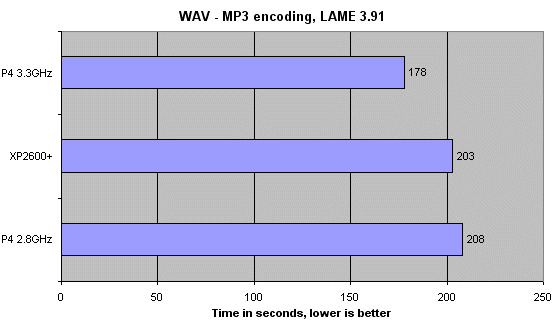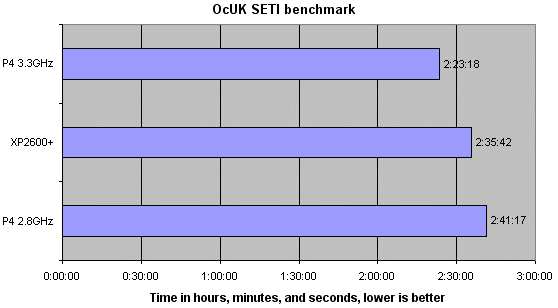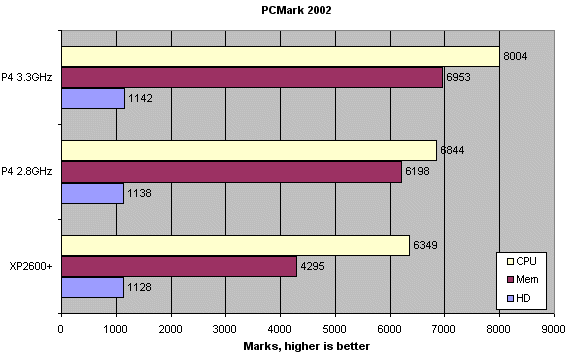Benchmarks II
Next we'll turn our attention to MP3 encoding. We're benchmarking by encoding a 638MB custom WAV file (Moby's Play album, incidentally) into 192kb/s MP3 using the LAME 3.92 encoder and Razor-Lame 1.15 front-end.

Another close-run battle here. MP3 encoding is no great respecter of bandwidth, so differing memory speeds are largely immaterial here. The 2.8GHz Pentium 4 just about manages to keep in contact with our enhanced XP2600, with both taking around three and a half minutes to compress the 638MB WAV file into 192kb/s MP3. The rampant 3.3GHz clock speed of the overclocked Pentium 4 completes the task in under three minutes.
I next ran the Ocuk SETI benchmark, a rather tough work-unit with an Angle Range of 0.417. This one takes a while to complete. One advantage in this benchmark is it's ability to display results to within 1/1000th of a second, I've rounded the results up to the nearest second for the sake of brevity. SETI simply thrives on clock speed and bandwidth. As I'm now a fully-fledged SETI member, the results were of particular importance to me. You can download this benchmark from here. Simply click on the runbench.bat and wait a while. The result will be contained in the result.sah file after completion.

Again, close result between the non-overclocked Pentium 4 and the FSB-enhanced XP2600 (12.5*170). The 3.3GHz of raw power are put to good use as it simply eats up the WU in record time. Again, the memory's slack timings somewhat hindered the 3.3GHz CPU.
On to PCMark 2002, It consists of a series of tests that represent common tasks in home and office programs. The benchmark is split into three constituent parts which focus on the CPU, memory and hard drive(s) respectively. PCMark 2002 seeks to do for home and office applications benchmarking what 3DMark does for video card benchmarking. You're given a final score for each part mentioned above.

PC Mark 2002 has always favoured the Pentium 4 over the Athlon XP, nothing much changes here. Even though both the XP2600+ and 2.8GHz P4 are running at almost identical memory speeds (178MHz vs. 170MHz), PCMark sees them as being wholly different. It also heavily favours the Pentium 4 in pure clock speed marks. You can make up your own minds as to how useful this benchmark is.









